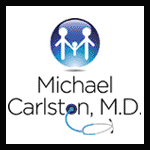
As I have written before, Vitamin D has become boring to me. That is not because it doesn’t do anything. To the contrary, it is precisely because it is so vitally important and effective. Maintaining a good level of vitamin D is fundamental to good health, no matter what health problems a person does or doesn’t have. Now and then, I find patients who haven’t grasped how simple and important Vitamin D is to health, so here is a reminder, appropriate to the season.
Among the “everything” that vitamin D impacts is brain development and function. Consequently, rising rates of autism spectrum disorder and the “normalcy” of vitamin D deficiency, demand our attention. Are they linked? Evidence suggests they are.
Several years back, studies in Sweden and Minnesota found that Somali immigrants suffered rates of autism and autism spectrum disorder much, much higher than the local caucasian children. The Somali communities in both countries were understandably concerned but also surprised by this illness, one they had never experienced before immigrating. In Minnesota, the Somali community refers to autism as the “Minnesota Disease”. In Sweden, they call it the “Swedish Disease”.
The reason some of us have lighter skin than others appears to be determined by how many generations our ancestors have lived in the cooler, darker regions of the world. Lighter skin allows our bodies to make more vitamin D with little sunshine. Although there are many other differences experienced by these Somali children, particularly diet changes, exposure to new environmental chemical toxins and severe social stress, the drop in circulating vitamin D is profound.
Since then other studies have added compellingly to what we already knew about vitamin D deficiency as a risk factor for autism spectrum disorder. The new publications, confirm the association.
In 2010 the University of Minnesota and the CDC, with support from Autism Speaks, studied Minnesota children, seeking links between ASD and vitamin D. They found that white children in Minnesota had a rate of autism nearly three times the national average and that the rate in Somali children was higher still.
Untidy as all such research is , that survey found that other black and hispanic children had lower rates of autism spectrum disorders than either the white or Somali children. As the study was focused on comparing Somali and white children, it is possible that the investigators’ focused increased the likelihood of autism spectrum disorder diagnosis in white and Somali children. Most notable to me is that ALL children there, white, black, hispanic, and Somali alike, had autism spectrum disorder at a rate well above the already disturbing national average.
Having lived in the Minneapolis area for the first 30 years of my life, I can confirm that it is difficult to get a healthy amount of vitamin D from the sun. I can also tell you innumerable stories of the compulsion Minnesota natives have for seeking the sun. Just as everyone in the Twin Cities heads “out to the lake” in the summer, everyone who can, heads south (usually Arizona) during the winter. The first “warm” day in the spring (60 degrees will do nicely, thank you), you will see people driving down the freeway with their windows open, singing and banging their hand on the side of the care and women sunbathing in bikinis next to piles of melting snow. My brief time in Sweden taught me that the same is true there. Swedes are obsessed with being out of doors in the summer. Sporting goods stores usually have an amazing variety of picnic baskets, chairs and gear. They have a tradition, incorporated in the Swedish Constitution called allemansratten, every person’s right to roam across ALL lands for the purpose of recreation and exercise.
These behaviors are compelling, instinctual drives to be out in the natural world whenever possible. I am convinced that the need to boost vitamin D is one of the underlying biological influences.
What else influences vitamin D levels? How about rainy weather? A study of children on the west coast (Washington, Oregon and California) from 1987 to 1999 uncovered a connection between rainfall and ASD risk Another study, confirmed this finding while incorporating considerations about potentially toxic environmental chemical exposures.
The bottom lines are prevention and treatment. Studies have shown that pregnant women, with higher levels of vitamin D, give birth to children less likely to develop autism. The same appears to be true of infants who are supplemented.
Although many of us have clinical experience that vitamin D supplementation helps children with ASD, research proof has been lacking. One of the most important pediatric journals in the world just published a case report, specifically because it was so impressive. Case reports are considered to be less impressive than controlled trials because other, often unknown factors can leak in, without anyone realizes it and so then, leading us to incorrect conclusions. When case reports are published, they are usually series of cases, not just one. This one was too impressive to overlook. A 32 month old boy with autism tested positive for vitamin D deficiency. After supplementing him with vitamin D, his core autism symptoms improved significantly.
We all need to be aware of getting enough vitamin D. That is fundamental, regardless of your health concerns, regardless whether you are sick or well. If you want to feel better or just maintain your vigorously excellent health, you need to maintain a healthy vitamin D level.
